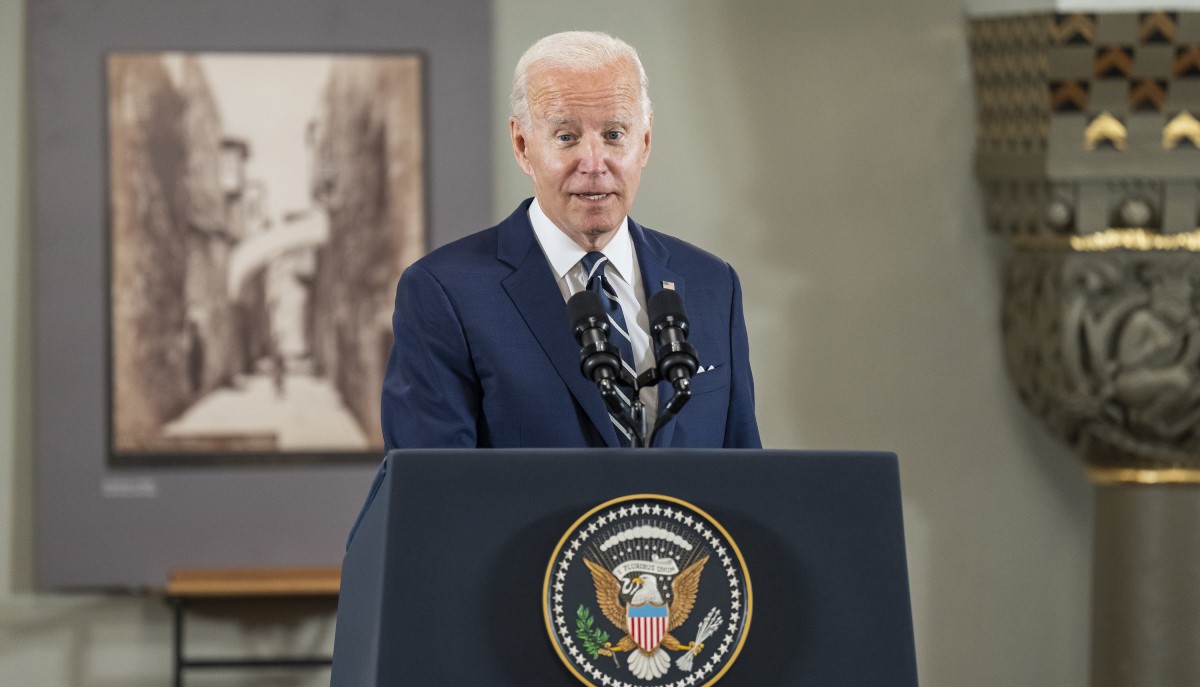Mere weeks after President Biden announced his intent to provide taxpayer giveaways of up to $20,000 on federal student loans, the Pacific Legal Foundation filed the first of what could be many lawsuits over the policy.
Herein is a primer on the legal theories behind the lawsuit, outlined in greater detail in the complaint itself. Despite Biden administration backtracking and alleged changes to the program, the lawsuit is still moving forward—and so likely will others.
Financial Harm Gives Plaintiff Standing
The case’s plaintiff, Frank Garrison, actually works for the Pacific Legal Foundation, which plays a role in his complaint. As an employee for a 501(c)3 nonprofit, Garrison participates in the Public Service Loan Forgiveness program. Under that program, if he continues to work in the nonprofit sector, taxpayers will pay off his entire loan balance in approximately four years.
Under Indiana law, Garrison will owe no state income taxes on the balance of his loan when it gets forgiven in four years’ time. But Indiana is one of at least six states where individuals receiving benefits under the Biden program will face a state income tax bill. (Democrats passed a provision exempting “forgiveness” under a potential Biden student loan amnesty from federal income taxes in last year’s “Covid relief” spending spree.)
Garrison thus faces a no-win situation: Making taxpayers pay off $20,000 of his loan balance now won’t make a difference to him later. He will have his entire balance put on taxpayers’ balance sheets in a few years’ time, no matter its size.
But right now, it will stick him with a state income tax bill of roughly $1,000—a bill he wouldn’t have had to pay if taxpayers paid that $20,000 later due to his participation in the public service payoff, rather than the new Biden bailout.
Because courts only adjudicate particular disputes, taxpayers who will pay the bill for Biden’s amnesty lack standing to object to the administration’s actions in court. But Garrison can claim a specific financial injury due to the Biden amnesty, meaning he can more credibly claim standing to file suit.
Ad Hoc Policymaking
The complaint also notes that, because Garrison participates in an income-based repayment program, he will have his loans automatically transferred to taxpayers—at least, according to the Biden administration’s original announcement. As such, he felt had no other recourse but to go to court and ask a judge to intervene, to prevent him from suffering financial harm.
In response, the Department of Education just added this Q&A to its website:
What if I don’t want to receive debt relief?
For most borrowers, you will only receive debt relief if you submit an application. But if you completed a Free Application for Federal Student Aid (FAFSA®) for the 2022–23 school year or are enrolled in an income-driven repayment plan based on your 2020 or 2021 income, you may be eligible for relief without applying. If you would like to opt out of debt relief for any reason, including because you are concerned about a state tax liability, you will be given an opportunity to opt out. [Emphasis added.]
This wording appears designed to respond to the lawsuit by arguing that Garrison, or others like him, will not suffer financial injury as a result of the administration’s unilateral amnesty. (To put it more bluntly, it looks like an attempt to buy off potential objectors.)
It should come as no accident that the U.S. Department of Education added this language one day after the lawsuit became public. Compare this version of the site, archived on the day of the complaint, with this version from the next day, featuring the above-quoted Q&A at the end of the list of questions and answers.
While designed to undermine Pacific Legal’s arguments regarding Garrison’s standing to sue, in many respects, it reinforces the foundation’s point about the substance of the complaint. Garrison’s suit argues that the Biden administration has violated the Administrative Procedure Act by not putting its actions out for notice-and-comment by the public and interested parties.
The fact that the administration announced this “forgiveness” via a Q&A on a website speaks to the slapdash nature of this entire process. It looks like a rushed attempt to buy off student voters prior to November’s midterm elections. Changing the details of the policy (again) by updating the website illustrates the way in which failing to conduct a deliberative, transparent rulemaking process not only violates the law but harms members of the public denied the opportunity to participate.
Could Save Taxpayers a Bundle
Should Garrison and Pacific Legal succeed in either of their arguments in the complaint—in addition to violations of the Administrative Procedure Act, the lawsuit also alleges that Congress never delegated such broad “forgiveness” authority to the executive—they will save taxpayers a bundle. A report issued by the Congressional Budget Office (CBO) just prior to the lawsuit’s filing provided the first official estimate of how much the Biden amnesty will cost taxpayers.
CBO believes that suspending student loan payments (again) through Dec. 31 will cost $20 billion and that the larger bailout will cost an additional $400 billion. The budget agency noted that the federal government will see lower repayments for at least 30 years, through 2052, as a result of this payoff—meaning that our children and grandchildren will pay the costs.
However, the budget agency did not calculate the impact of additional modifications the Biden administration proposed to the income-based repayment program going forward. Outside budget analysts have estimated that those changes—disregarding more expenses from the income-based repayment formula, and lowering the percentage of income people have to repay—“could reasonably exceed $450 billion” over a decade, putting the total tab for this amnesty in the neighborhood of $1 trillion.
Taxpayers of all stripes thus have good reason to hope the lawsuit filed by Garrison and Pacific Legal succeeds. Not only would it restore the rule of law by blocking an outrageous abuse of executive authority, but it would also prevent the federal government from falling further over the fiscal cliff.
Chris Jacobs is founder and CEO of Juniper Research Group, and author of the book, “
The Case Against Single Payer.” He is on Twitter:
@chrisjacobsHC. Previously he was a senior health policy analyst for the Texas Public Policy Foundation, a senior policy analyst in The Heritage Foundation’s Center for Health Policy Studies, and a senior policy analyst with the Joint Economic Committee’s Senate Republican staff. During the debate over the Patient Protection and Affordable Care Act, popularly known as Obamacare, Jacobs was a policy adviser for the House Republican Conference under then-Chairman Mike Pence. In the first two years of the law’s implementation, he was a health policy analyst for the Senate Republican Policy Committee. Jacobs got his start on Capitol Hill as an intern for then-Rep. Pat Toomey (R-Pa.). He holds a bachelor’s degree in political science and history from American University, where he is a part-time teacher of health policy. He currently resides in Washington, D.C.





 Politics2 years ago
Politics2 years ago
 Politics2 years ago
Politics2 years ago
 Politics2 years ago
Politics2 years ago
 Health2 years ago
Health2 years ago
 Politics2 years ago
Politics2 years ago
 Politics2 years ago
Politics2 years ago
 Entertainment2 years ago
Entertainment2 years ago






